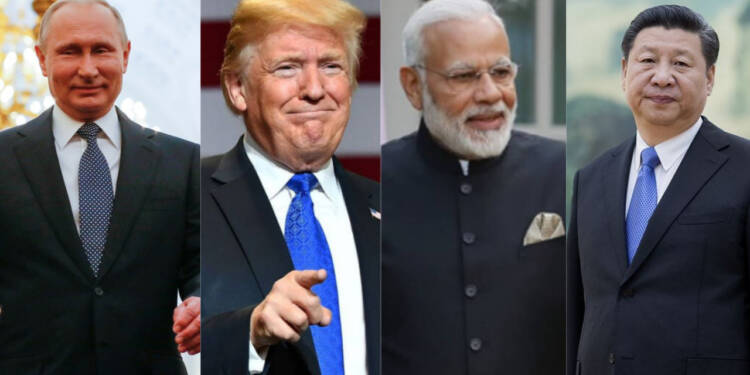A move that shows the Indian government’s farsightedness in anticipating events of the future, New Delhi has thrown its hat in the ring of Arctic to thwart any potential Chinese misadventures in the region. India recently released a draft Arctic Policy document open for suggestions and comments from the common public.
“India seeks to play a constructive role in the Arctic by leveraging its vast scientific pool and expertise in Himalayan and Polar research. India would also like to contribute in ensuring that as the Arctic becomes more accessible, the harnessing of its resources is done sustainably and in consonance with best practices formulated by bodies such as the Arctic Council,” read the note accompanying the draft.
In nutshell, the document seeks to build on the existing stand of India that the Arctic should only be used for scientific exploration. However, upon further delving into the document, the reader can understand that India is playing the long game by raising the stakes in the geopolitics of the region which have become increasingly heated due to the Sino-Russian conflicts.
Read more: Not stopping at Russia’s Vladivostok, China is eyeing a piece of Alaska in the Arctic
“India believes that any human activity in this fragile region should be sustainable, responsible, and transparent with respect for international laws, including UNCLOS [United Nations Convention for the Law of the Sea]. India, therefore, looks forward to increasing its engagement with this vital region and its governing bodies as a responsible partner,” read the draft Arctic Policy.
The syntax of the draft invoking the UNCLOS was done deliberately and subtly to call out China which has ramped up its activities in the Arctic, lately too.
Reported extensively by TFI, China has been eyeing the Far East region of Vladivostok to reach closer to the Arctic and claim its authority over the entire resource-rich reason. Despite being thousands of miles away from the Arctic, China continues to ruffle the feathers of Russia, as well as the US by proclaiming itself as an ‘Arctic Country”
On Monday, the US Secretary of State Mike Pompeo tweeted and called out China for its figment of imagination regarding the Arctic, “I made clear that it is a communist fiction for China to be a “near-Arctic nation” when you are 900 miles from the Arctic. This pangolin’s nose under the Arctic tent went on for too long – we did what we do by calling out simple reality.”
I made clear that it is a communist fiction for China to be a “near-Arctic nation” when you are 900 miles from the Arctic. This pangolin’s nose under the Arctic tent went on for too long – we did what we do by calling out simple reality. #ChinaIsNotNearArctic pic.twitter.com/kGQptSz2EY
— Secretary Pompeo (@SecPompeo) January 3, 2021
Read more: There could be a possible US-Russia alliance soon simply to kick China out of the Arctic
The Arctic is environmentally fragile, and according to domain experts, in the coming two decades, the polar ice caps could certainly melt to the extent of opening new trade routes in the resource-rich region. Russia wants to use the upcoming trade routes for becoming a maritime power.
Moscow has even built a Northern Sea Route (NSR) that already carries freight in excess millions of tons annually. Yet, the Kremlin is concerned about China’s plans to build a ‘Polar Silk Road’ in the Arctic, as a part of Chinese President Xi Jinping’s Belt and Road Initiative (BRI).
To counter China, Russia had invited India to invest in the Far East region of Vladivostok when PM Narendra Modi had visited Russia for the last bilateral summit. Russian Minister of Foreign Affairs Sergey Lavrov back then had said that India could ultimately become the first non-Arctic state that engages in mineral extraction in the Arctic.
The Russian government wants to explore and develop oil fields in the region with help of Indian companies. The two governments also expressed support to companies from both sides “for development of cooperation and exploring opportunities for joint development of oil fields in Russian territory.”
India’s pro-activeness in the region is a welcome initiative — for the benefits of today’s actions could be reaped decades later. Climate change is inevitable and the melting of ice caps presents a unique opportunity for New Delhi to tilt the world axis in its scale.

























